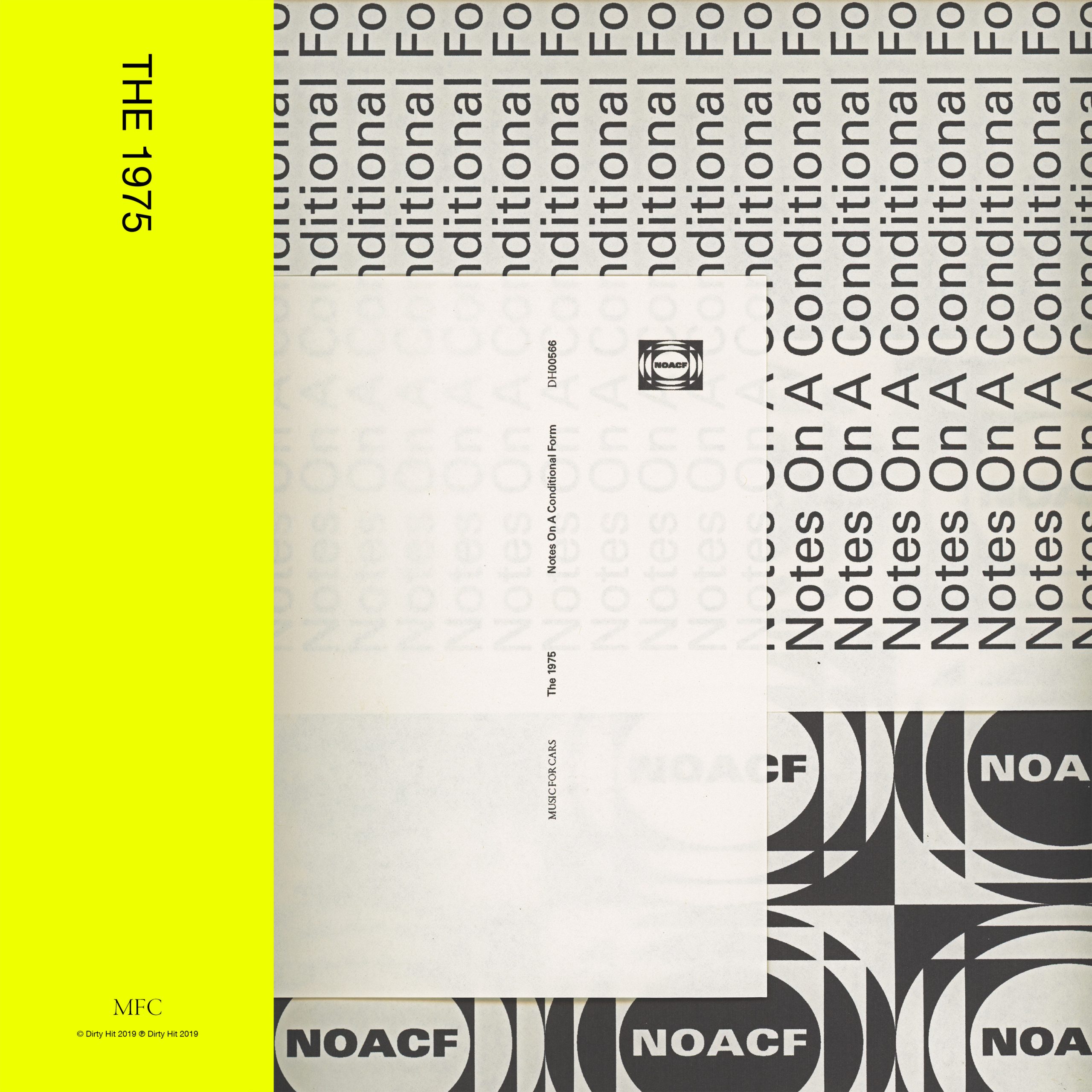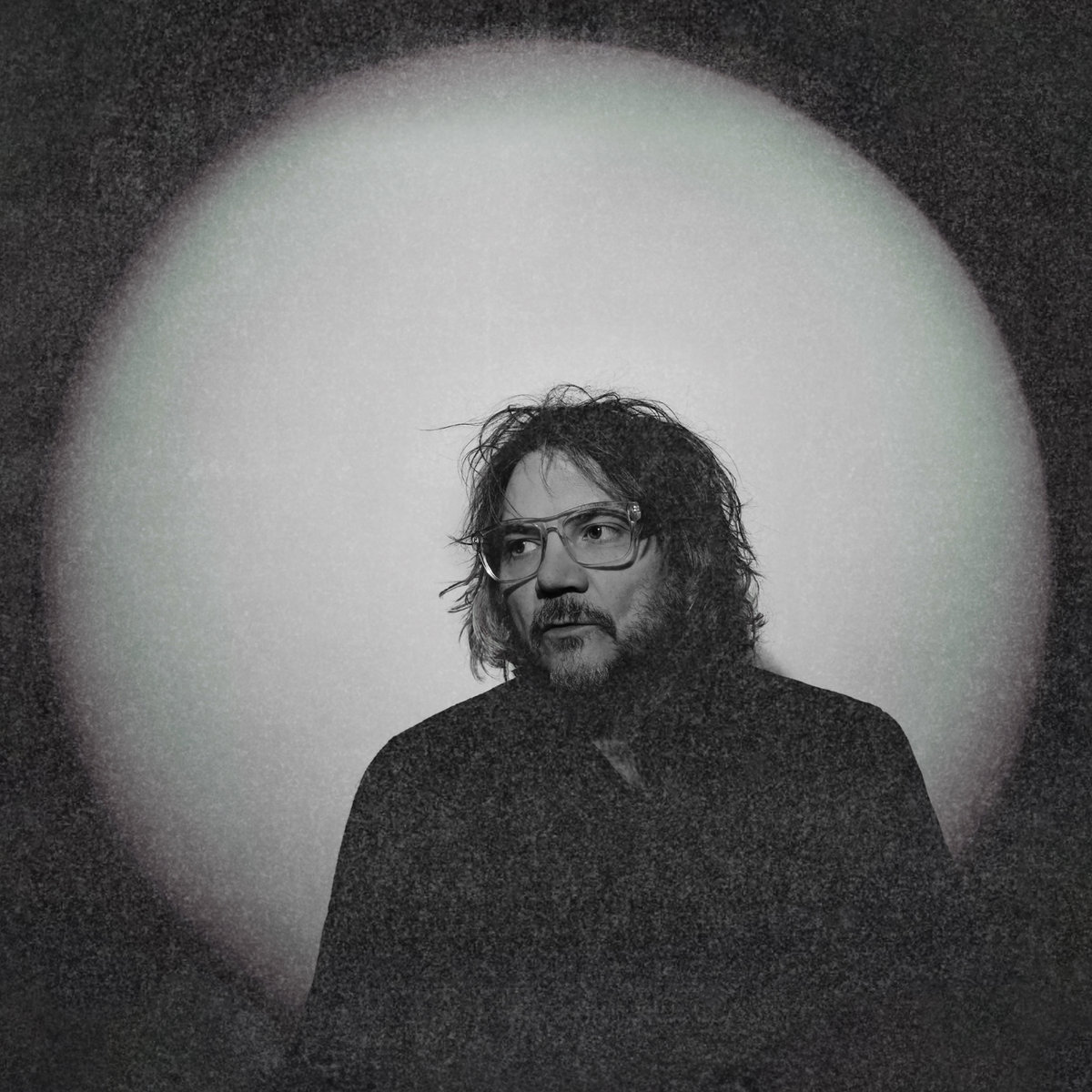The first voice on the 1975's new album Notes On A Conditional Form does not belong to Matty Healy. On opening track "The 1975," teenage climate activist Greta Thunberg spends five minutes calmly and methodically explaining how fucked our species will be if we do not reduce greenhouse gas emissions. As the band eases into twinkling post-rock gravitas, Thunberg explains, "You say that nothing in life is black or white, but that is a lie, a very dangerous lie. Either we prevent a 1.5 degree of warming, or we don't; either we avoid setting off that irreversible chain reaction beyond human control, or we don't; either we choose to go on as a civilization, or we don't."
The 1975's first three albums began with epic eponymous tracks, too, but they were all versions of the M83-indebted synth-pop overture that has become the band's theme song of sorts. An ode to oral sex that increasingly became an act of self-mythology, it recurred at the start of each LP in slightly different form, like a new spin on "Down In The Hole" kicking off a season of the The Wire. Leaving that intro behind represents a significant change for the band. Yet far from charting a new course, the Thunberg edition of "The 1975" is the sound of doubling down. Even if it's technically a new type of song for the band, in spirit, such an earnest, ostentatious, topical opening volley is perfectly in tune with the ethos they've established over the past decade. This is the kind of expertly extra gesture they specialize in, an authentic expression that nonetheless seems calibrated to provoke intense reactions from their fans and haters alike.
Another reason this opening track will surprise no one familiar with the 1975 is that it's been out forever. To the internet-addled mind, it's ancient. It's so old that it actually predates Thunberg's infamous viral clash with Donald Trump by two months. They've been sharing music from Notes On A Conditional Form for nearly a year now, trickling out a new song every month or so, ultimately revealing eight of the album's 22 tracks in advance -- a campaign that began literally the day after they played their final TV gig promoting their previous album, 2018's A Brief Inquiry Into Online Relationships. Given that many mainstream artists today exist in a state of perpetual rollout and that streaming lends itself to tracklists that balloon beyond the confines of a CD, a seemingly endless promo campaign for a seemingly endless album is part and parcel with the 1975's distinctly millennial approach to rock stardom.
So is the ecumenical approach to genre exemplified by all those early singles. The band continues to imprint its unique sensibility on a wide range of styles, developing not an aesthetic so much as a point of view. Every musician is the product of their influences, but Healy feels especially like a playlist curator, refashioning bits and pieces from across pop music history in his own image. He and his bandmates -- particularly drummer and co-producer George Daniel, the Jim Eno to his Britt Daniel, with whom Healy is currently holed up in the English countryside riding out the pandemic -- have become masters of meticulously re-creating a given sound and then stepping it into the present with a few modern twists. Louche, brassy VH1-core; downcast UK garage; glimmering post-alternative pop-rock; confessional indie-folk; searing aggro rock 'n' roll; the 1975's sonic universe is now vast enough to contain all this and much more.
They've spent their entire career building toward such boundlessness. On their 2013 debut, they wrote the stadium rock anthems U2 could no longer pull off by slathering them in the gloss and artifice of U2's more synthetic '80s and '90s peers. By the next album they were hopscotching from plastic funk and new wave to folk-pop, blog-house, and post-rock, Healy leaning into preening frontman tropes in a way that blurred the line between parody and embrace. They called that one I Like It When You Sleep, For You Are So Beautiful Yet So Unaware Of It, betraying the emo DNA that had always been in the mix. By LP3 they were channeling Radiohead and Bon Iver and Joy Division, and, uh, Huey Lewis and Michael Bolton and Ed Sheeran, part of a creative sprawl that also involved background dancers on tour and a series of surreal, interconnected music videos. With Notes On A Conditional Form, they've somehow found a way to inflate out even further without exploding.
The tracklist is so expansive, in fact, that you could build a classic album out of its early singles alone. The hard rock tantrum "People" responds to its moment with the necessary vitriol. Their expression of the depressive exhaustion that exists in synchronicity with the rage, "Frail State Of Mind," imagines an alternate timeline in which Burial crossed over into pop production. The strummy, shimmery "Me & You Together Song" laces its old-fashioned giddiness with deeply current questions about identity. The floaty, impressionistic story song "The Birthday Party" explores the quest to stay pure when hard drugs and illicit sex beckon and your favorite new band has been cancelled. They recruited Phoebe Bridgers for an acoustic reverie about closeted queer attraction and FKA Twigs for a saxophone-blaring turn-of-the-'90s romp about FaceTime sex. And then there's "Guys," a shamelessly hokey tribute to their own friendship that might bring you to tears if you let your guard down. Taken altogether, it's been a lot, yet it only represents about a third of the music here.
So, what else is there? Matty Healy rapping, for one thing, pitched down over jazzy gospel piano chords and a live boom-bap loop. Lots more bleary dubstep and two-step garage excursions. In "Then Because She Goes," a perfect shoegaze song. In "Roadkill," a decent stab at truckstop rock, or at least truckstop rock as filtered through Wilco and Fleetwood Mac. Healy keeps toggling through styles as if trying on costumes: "I'd like to meet myself and swap clothes," he sings on the moodily skittering "I Think There's Something You Should Know." As ever, there are grandiose instrumental interludes. As ever, there are heartfelt ballads on guitar and piano, the latter ("Don't Worry") composed by Healy's father and performed under the influence of Justin Vernon. As ever, the album drags on too long, the product of a band that, for better or worse, is clearly in love with its own music: "I feel like now, we are one of -- if not the -- definitive band of that whole [last] decade," Healy recently told Billboard.
Self-regard aside, the 1975's catalog at this point really does feel like a crucial document of their era. Healy writes about navigating personal connection in an increasingly online world, about the nuances of messy modern romance, about finding ways to cope that don't involve self-medicating into oblivion, about his desperate desire to unfuck the world and the feelings of apathy and powerlessness that keep him from getting out of bed. Whereas the bands he grew up on used to be fodder for away messages, the dynamic is now inverted, each song a vessel for the personal sharing and pontificating native to social media. In quips and asides that often sound like one side of a conversation, his generation's crises and his own interpersonal drama are all jumbled together in the same feed.
"I suppose the question is: Can this center really hold?" Healy told GQ. "I’m not prophesying or predicting anything. I’m just saying: This shit feels fucking weird now." Or as he sings on "Nothing Revealed / Nothing Denied," the one with the rapping: "Life feels like a lie/ I need something to be true/ Is there anybody out there?" These are not new ideas in popular music, but Healy expresses them in a way that makes them feel decidedly current, cramming words and concepts from the present into musical forms from bygone eras as if to emphasize what a bizarre future we find ourselves living in. Yet these big-picture concerns always funnel back into his daily experience, the same way Mad Men mostly lets major historical events simmer in the background, coloring stories that are ultimately driven by personalities.
Which brings us back to the self-regard: Although Healy sometimes writes in character, the mythology the 1975 have been building continues full speed ahead here. "Will I live and die in a band?" he asks at the outset of the tender, acoustic "Playing On My Mind." "Roadkill" serves up unglamorous scenes from an American tour: "Well I pissed myself on a Texan intersection with George spilling things all over his bag." At one point he calls back to "Love It If We Made It," the most self-consciously anthemic 1975 song to date, admitting, "I never fucked in a car, I was lyin'," as if he's John Lennon informing us that the walrus was Paul. The most sweeping of the instrumentals is called "The End (Music For Cars)," a nod to the conclusion of the two-album arc that began with A Brief Inquiry. "Guys," of course, caps everything off with an emotional paean to the group itself, a gesture of fraternal love that plays like a victory lap for the world's most ambitious pop band: "You guys are the best thing that ever happened to me." If the 1975 rub you the wrong way, it's probably enough to make you gag.
That's just it, though. The endless rollouts, the bloated tracklists, the headline-baiting lyrics, the willful convergence of cool and uncool, the loose-cannon tweets, the inflammatory pullquotes, the pouty-faced photo shoots, the outfits, the haircuts, the pomposity, the bravado, the Kanye-like belief in their own genius -- it's all part of the too-much-ness that's intrinsic to this band. It's a feature, not a bug. You either roll with it, or you roll your eyes at it. The 1975 have released no perfect albums, yet Notes On A Conditional Form is a perfect 1975 album -- an acute summary of their obtuse grandeur, a deeply polarizing collection with a little something for everyone. Still, it's hard to imagine them expanding outward like this forever. Perhaps realizing this, Healy has called this album the end of an era and has hinted at abandoning the album format entirely going forward. He's currently enthusiastic about branching out into interactive gaming and VR: a reasonable next step for an artist who has already responded to his planet's impending extinction by constructing a world of his own, one track at a time.
Notes On A Conditional Form is out 5/22 on Interscope/Dirty Hit. Pre-order it here.






